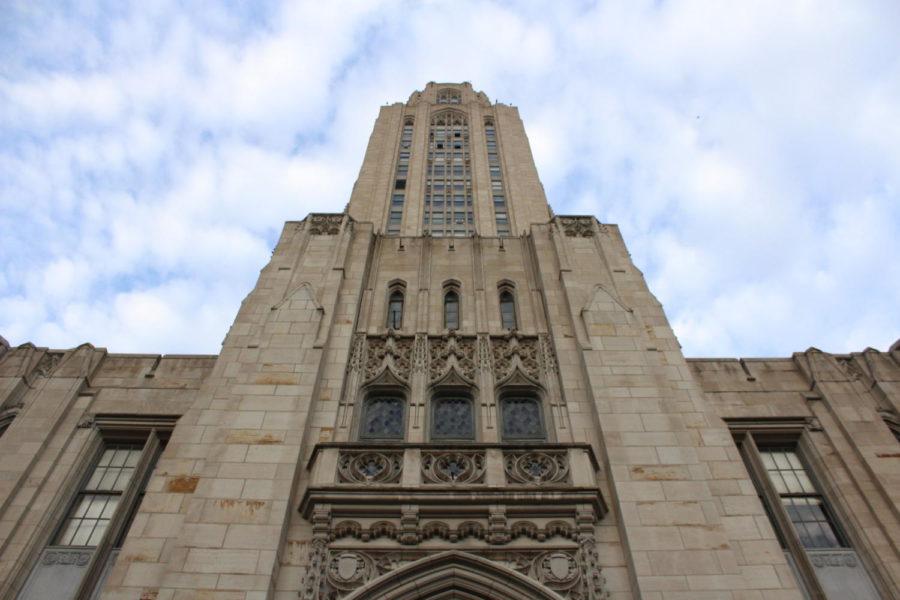Pitt to distribute $31.9 million in federal funds to more than 30,000 students
The American Rescue Plan will allow Pitt to distribute $31.9 million in federal funding to students.
September 21, 2021
Pitt announced Monday that it will distribute $31.9 million in federal funding to more than 30,000 students, pulling from the $54.7 million it received from President Joe Biden’s American Rescue Plan.
This bill “provides financial assistance to students to help cover emergency costs associated with the coronavirus pandemic,” according to Pitt’s announcement. It authorized $39.6 billion in COVID-19 relief funding for higher education. This is the third round of federal relief Pitt has received, totaling $111 million with $58.3 million going directly to students.
Originally, the government mandated that half of the University’s $27.4 million in funding go toward direct student support. Pitt decided to distribute an additional $4.5 million, bringing the total amount for students to $31.9 million.
Provost Ann Cudd said Pitt is “eager” to distribute these funds to students affected financially by the COVID-19 pandemic.
“In accordance with the ARPA guidelines, Pitt is broadly distributing funds to graduate and undergraduate students in a way that supports and helps them complete their educational journeys,” Cudd said. “In response to effects of the pandemic, we are eager to provide grants as broadly as possible to assist our students. It is the right thing to do.”
Only students enrolled at at least half-time — six academic credits for undergraduate students and 4.5 for graduate and professional students — for the fall 2021 semester are eligible for grants.
Undergraduate and graduate students who filed a 2021-22 Free Application for Federal Student Aid with the University can receive a $600 or $1,200 grant, depending on their financial need. Grants will be awarded to students who show an “exceptional” financial need, based on FAFSA information.
If a student filed a FAFSA, the only thing they have to do is submit a consent form by Sept. 30 at 11:59 p.m. If a student fills out the form and is awarded a grant, Pitt will apply it to their student account first and refund any remaining funds through the normal e-refund process. While students do not need to fill out the consent form to be considered for a grant, Pitt will give students their grant through a refund if they don’t submit one.
Undergraduate and graduate students who have not filed a FAFSA will receive an email from the Office of Admissions and Financial Aid with an application that asks students to explain their emergency needs for items such as tuition, food, housing, health care — including mental health care — and child care. The deadline to apply for a grant is Sept. 30 at 11:59 p.m.
Pitt will also award grants that average $7,500 to approximately 400 seniors. Pitt’s announcement said this will reduce each student’s unmet need to $20,000 at the Oakland campus and $15,000 at regional campuses. These seniors would have qualified for the Pitt Success program if it was in place during their first year in 2019, which was the same year Pitt launched the program.
Pitt is also providing some of its institutional relief funding to help Ph.D. and doctoral students with appointments and fellowships. Students whose degree progress was delayed by one or more terms due to the COVID-19 pandemic are eligible for funding.
Students will be notified if they have received an award by Oct. 11 through their Pitt emails. Any updates can be found on Pitt’s ARP Grant website.
Hari Sastry, senior vice chancellor and chief financial officer, said the remaining $22.9 million in relief funding from ARPA will be used to offset expenses related to the COVID-19 pandemic, such as testing, personal protective equipment and new technology in the classrooms.
According to the announcement, Pitt incurred more than $160 million in COVID-19 related net expenses.
“Given the tremendous needs created by the pandemic, we felt it was important to support students in ways that went beyond the federal requirements,” Sastry said.








